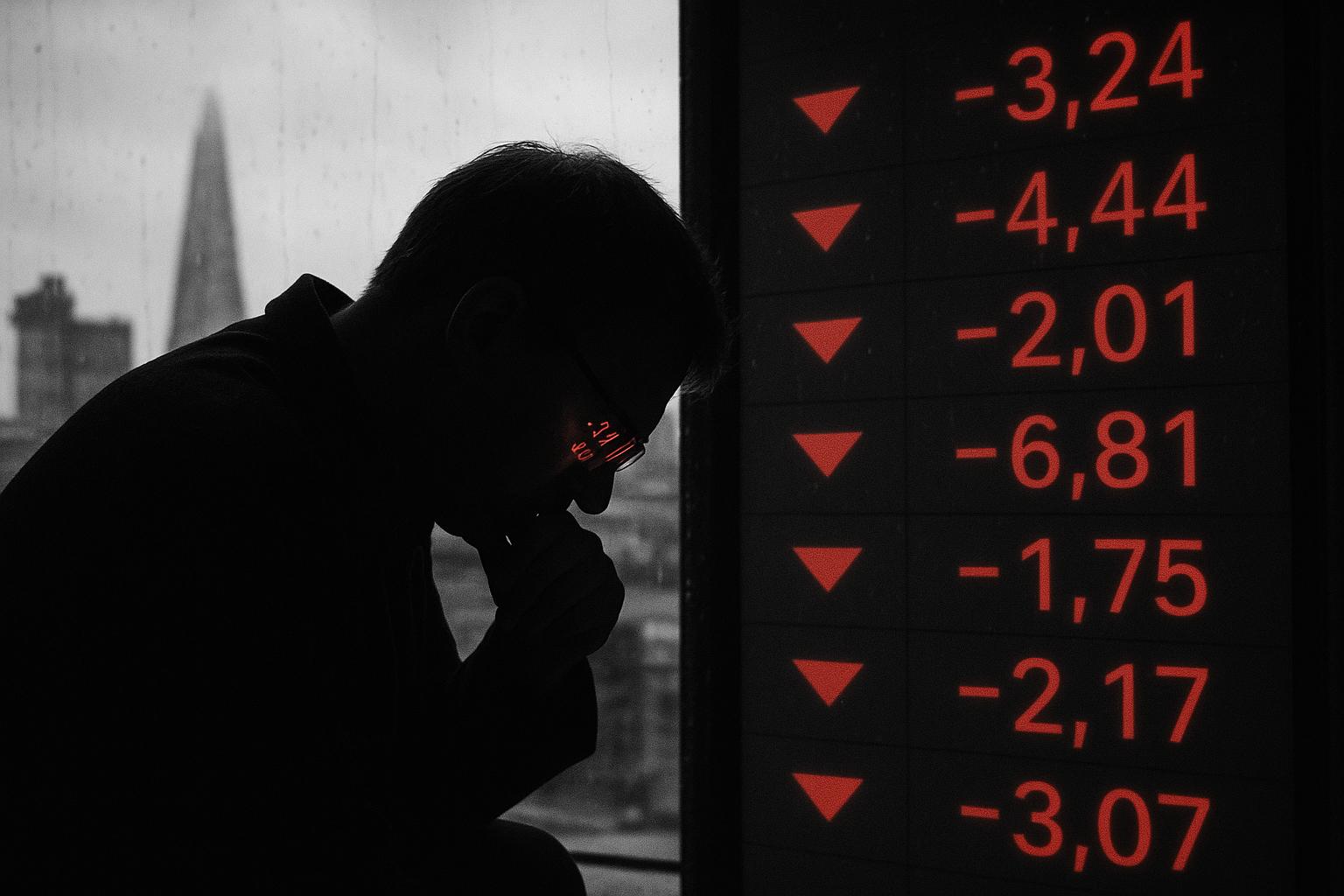Investor confidence in the UK’s economic prospects has deteriorated sharply this month, according to a monthly survey by Hargreaves Lansdown that found sentiment fell across regions but was particularly weak in Britain. The broker’s early‑August poll, conducted between 1 and 8 August, showed optimism about the UK economy sliding to its lowest point since April, a drop the firm linked to worries about weak growth and what it described as mixed messaging from Labour on tax and spending. According to the company, the retreat in confidence was mirrored in more cautious attitudes to the domestic stock market.
Hargreaves Lansdown’s investor confidence score for the UK fell by more than sixteen per cent in the first week of August, leaving an index reading that the firm said was the lowest since the market reaction to earlier tariff threats in April. The research note highlighted that the setback was part of a broader global softening in sentiment, but named Britain among the worst‑hit markets as investors reassessed near‑term growth and policy risk. The firm also pointed to a rotation in client interest towards some mid‑cap funds and investment trusts even as large firms continued to struggle.
Those market jitters have a clear economic backdrop. The Office for National Statistics’ monthly GDP bulletin showed the UK economy contracted for a second successive month in May, with output falling 0.1% following a 0.3% decline in April. The ONS noted that production and construction were the main drags on monthly output, while services posted modest growth across the three months to May — and cautioned that these early monthly estimates are subject to revision. That mix of weak headline monthly prints but some three‑month resilience helps explain why market reactions are sharp even if the picture is not uniformly dire.
Inflationary pressure has also complicated the outlook. The ONS reported that the Consumer Prices Index rose by 3.6% year‑on‑year in June, up from 3.4% in May, with higher food and housing costs among the contributors. For investors this combination of slowing output and persistent inflation raises difficult questions about the timing and scale of policy responses, and it helps explain why confidence has become fragile.
Political and fiscal uncertainty has intensified those economic concerns. Hargreaves Lansdown and other commentators flagged what they called “mixed messaging” from the Labour frontbench about tax and spending plans, and market commentary has focused on whether the Chancellor will need to raise taxes in the autumn to plug a substantial fiscal shortfall. The Guardian reported that the Chancellor has signalled productivity‑raising measures will be the priority for the autumn Budget, but acknowledged the constraints posed by weaker growth; independent analysis and think‑tank estimates cited by coverage in The Independent put the potential fiscal gap in the tens of billions of pounds, forcing difficult choices between tax rises, spending cuts or higher borrowing.
Structural worries about the UK’s capital markets add another layer to investor unease. Reuters has documented an ongoing exodus of companies from London listings, naming recent high‑profile moves that sought deeper liquidity and higher valuations overseas. Market participants told Reuters that weaker IPO appetite and comparatively lower valuations in London have encouraged some firms to choose alternative venues, a trend that investors and policy‑makers fear could further erode the domestic market’s depth.
Yet the picture is not uniformly negative. Hargreaves Lansdown’s own release underlined pockets of resilience: some mid‑cap firms and funds have performed relatively well even as larger companies grapples with headwinds. Combined with the ONS’ note that GDP grew by 0.5% in the three months to May versus the prior quarter, the data suggest the economy contains uneven dynamics rather than an outright freefall — a nuance that markets are trying to price in as they await clearer policy signals.
Looking ahead, the autumn Budget will be pivotal for investor sentiment. Analysts and think‑tanks argue that clarity over the Chancellor’s fiscal plans and credible measures to lift productivity will be essential to restore confidence. For now, Hargreaves Lansdown’s survey serves as an early barometer of a market increasingly sensitive to both economic data and political signalling: until those threads are untangled, investor caution looks set to persist.
📌 Reference Map:
##Reference Map:
- Paragraph 1 – [1], [2]
- Paragraph 2 – [2], [1]
- Paragraph 3 – [3]
- Paragraph 4 – [4]
- Paragraph 5 – [1], [2], [6], [7]
- Paragraph 6 – [5]
- Paragraph 7 – [2], [3], [5]
- Paragraph 8 – [6], [7], [2]
Source: Noah Wire Services
